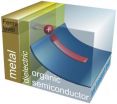(Press-News.org) CHICAGO, IL—Bisphenol S (BPS), a common substitute for bisphenol A (BPA) in consumer products, may have similar toxic effects on the heart as previously reported for BPA, a new study finds. The results were presented Monday at the joint meeting of the International Society of Endocrinology and the Endocrine Society: ICE/ENDO 2014 in Chicago.
In the years since research evidence first showed many potentially damaging health effects of the industrial chemical BPA, some manufacturers have switched to its chemical cousin, BPS, to make hard plastics and other products that they call BPA free, said the study's lead investigator, Hong-Sheng Wang, PhD, from the University of Cincinnati.
Although some BPA-free products contain no bisphenols, Wang said, "BPS is one of the substitutes used in BPA-free products. There is implied safety in BPA-free products. The thing is, the BPA analogs—and BPS is one of them—have not been tested for safety in humans."
BPA is an endocrine (hormone) disrupter that can interfere with the actions of native estrogen and other hormones, but it is not clear whether BPS also is disrupts hormones.
In what Wang called "one of the first assessments of BPS' effect in mammalian primary cells or organs," he and his co-workers tested an environmentally relevant dose of BPS in the hearts of approximately 50 rats. The 1-nanomolar dose was in the range of BPS found in human urine samples in a study by other authors.
In the current study, the investigators perfused, or flowed, BPS through the arteries of each animal's pumping heart, after stimulating the heart with the hormone catecholamine to mimic stress. For a control group, 30 rat hearts received only catecholamine and no BPS.
Exposure to BPS rapidly increased the heart rate of female rats and under the stress condition led to arrhythmias—heart rhythm abnormalities—far greater than in the control rats that did not receive BPS, Wang reported. Electocardiograms demonstrated that BPS caused extra heartbeats and a racing heartbeat, also known as ventricular tachycardia. In male rats, BPS reportedly did not have this rapid impact on the heart.
To determine the cause of the cardiac effects in female rats, the researchers studied cardiac muscle cells from some of the rats. Using studies at the cellular and protein levels, they found that BPS caused abnormal calcium handling, or cycling, which is a key cause of arrhythmias, according to Wang. This action is very similar to the underlying mechanism of BPA's toxic effects on the heart, which Wang and his colleagues showed in a previous study.
The investigators were able to abolish the BPS-induced heart rhythm abnormalities by blocking a type of estrogen receptor (beta) in the female rats. This result shows that "the BPA analog BPS is not necessarily free of endocrine-disrupting activity," Wang said.
"Our findings call into question the safety of BPA-free products containing BPS," he said. "BPS and other BPA analogs need to be evaluated before further use by humans."
INFORMATION:
Grants from the National Institutes of Health and the University of Cincinnati Center for Environmental Genetics helped fund this work.
Founded in 1916, the Endocrine Society is the world's oldest, largest and most active organization devoted to research on hormones and the clinical practice of endocrinology. Today, the Endocrine Society's membership consists of over 17,000 scientists, physicians, educators, nurses and students in more than 100 countries. Society members represent all basic, applied and clinical interests in endocrinology. The Endocrine Society is based in Washington, DC. To learn more about the Society and the field of endocrinology, visit our site at http://www.endocrine.org. Follow us on Twitter at https://twitter.com/#!/EndoMedia.
Common BPA-like chemical, BPS, disrupts heart rhythms in females
2014-06-23
ELSE PRESS RELEASES FROM THIS DATE:
Researchers synthesize previously unknown form of magnesium carbide
2014-06-23
An international team of researchers from the United States, France and Moscow Institute of Physics and Technology (Russia) has synthesized a previously unknown form of magnesium carbide. This material can be used for synthesizing carbon nanostructures and other compounds. Details can be found in an article published in the journal Inorganic Chemistry.
A team of researchers from the Carnegie Institution for Science (United States), Paris-Sorbonne University, the European Synchrotron Radiation Facility in Grenoble,the SOLEIL synchrotron facility (France), the State University ...
Electrostatics do the trick
2014-06-23
Organic semiconductors allow for flexible displays (OLEDs), solar cells (OPVCs), and other interesting applications. One common problem in these devices, however, is the interface between the metallic contacts and the organic semiconductor material, where undesirable losses occur. Now Dr. Martin Oehzelt has shown what these losses between the metal and the organic semiconductors depend upon and how to minimize them. In particular, his model also explains why a thin, electrically insulating layer between the two materials can even facilitate the transition of charge carriers. ...
New study offers potential avenues for treatment of deadly nasopharyngeal cancer
2014-06-23
A team of scientists from the Cancer Science Institute of Singapore (CSI Singapore) at the National University of Singapore, National University Cancer Institute Singapore (NCIS) and National University Hospital Singapore (NUH), discovered a distinct mutational signature and nine significantly mutated genes associated with nasopharyngeal cancer, paving the way to developing novel therapies for this deadly disease.
The research group, led by Professor H. Phillip Koeffler, Senior Principal Investigator at the CSI Singapore and Deputy Director of NCIS, has conducted the ...
Cell stress inflames the gut
2014-06-23
Over 3.5 million people in Europe and the US suffer from Crohn's disease or ulcerative colitis – the two most common forms of IBD. Chronic bowel inflammation is caused by an overreaction of the immune system to the bacteria which naturally occur in the gut. "This overreaction can come about if, for example, the anti-stress mechanism in the cells of the intestinal mucosa does not function correctly," explains Prof. Dirk Haller of the TUM Chair of Nutrition and Immunology.
What Prof. Haller is referring to is the unfolded protein response (UPR) – a sequential chain of ...
Blood sugar improves with first gastrointestinal microbiome modulator, NM504
2014-06-23
CHICAGO, IL — In adults with prediabetes, a new drug that alters microbial populations and their environment in the gastrointestinal (GI) tract improves glucose tolerance—the body's response to consuming carbohydrates— after four weeks of treatment and without a change in diet. These results, from a pilot study, will be presented Monday at the joint meeting of the International Society of Endocrinology and the Endocrine Society: ICE/ENDO 2014 in Chicago.
The not-yet-named therapeutic, NM504, is the first in a new class of therapies known as GI microbiome modulators. The ...
When couples disagree on stroke recovery, one partner can suffer
2014-06-23
CINCINNATI—An innovative study from a University of Cincinnati (UC) social work researcher has found that when a stroke survivor and his or her caregiving spouse disagree on the survivor's rate of recovery, the caregiving spouse is more likely to experience depression and emotional distress.
Assistant Professor Michael McCarthy, PhD, working with co-author Karen Lyons at the Oregon Health and Science University, interviewed 35 couples in which one spouse had experienced a stroke within the past three years.
In separate sessions, stroke survivors and their spouses discussed ...
Cancer genes hijack enhancers
2014-06-23
Medulloblastoma is the most common childhood brain tumor. It is classified in four distinct subgroups that vary strongly in terns of the aggressiveness of the disease. Group 3 and Group 4 tumors, which are very challenging, are particularly common. "For these two tumor groups, hardly any characteristic genomic changes that drive tumor growth and would make potential targets for drug development have been identified," says Prof. Dr. Peter Lichter from the German Cancer Research Center (Deutsches Krebsforschungszentrum, DKFZ), who is coordinator of the PedBrain Tumor network. ...
Physicists find way to boot up quantum computers 72 times faster than previously possible
2014-06-23
Press the start button, switch on the monitor, grab a cup of coffee and off you go. That is pretty much how most us experience booting up a computer. But with a quantum computer the situation is very different. So far, researchers have had to spend hours making dozens of adjustments and fine calibrations in order to set up a chip with just five quantum bits so that it can be used for experimental work. (One quantum bit or 'qubit' is the quantum physical equivalent of a single bit in a conventional computer). Any small errors in the adjustment and calibration procedure and ...
The first demonstration of a self-powered cardiac pacemaker
2014-06-23
Daejeon, Republic of Korea, June 23, 2014--As the number of pacemakers implanted each year reaches into the millions worldwide, improving the lifespan of pacemaker batteries has been of great concern for developers and manufacturers. Currently, pacemaker batteries last seven years on average, requiring frequent replacements, which may pose patients to a potential risk involved in medical procedures.
A research team from the Korea Advanced Institute of Science and Technology (KAIST), headed by Professor Keon Jae Lee of the Department of Materials Science and Engineering ...
Have you been unlucky -- or are you just lazy?
2014-06-23
A new study from the interdisciplinary Interacting Minds Centre at Aarhus University examines the difference between American and Danish attitudes to welfare services. Even though the two countries are traditionally portrayed as being miles apart in this respect, the study concludes that the difference between the ways the two societies are organised is not due to fundamental differences in attitude about when the state should provide financial assistance for citizens.
"The study challenges the conventional wisdom that we Danes are more inclined to play the Good Samaritan ...


